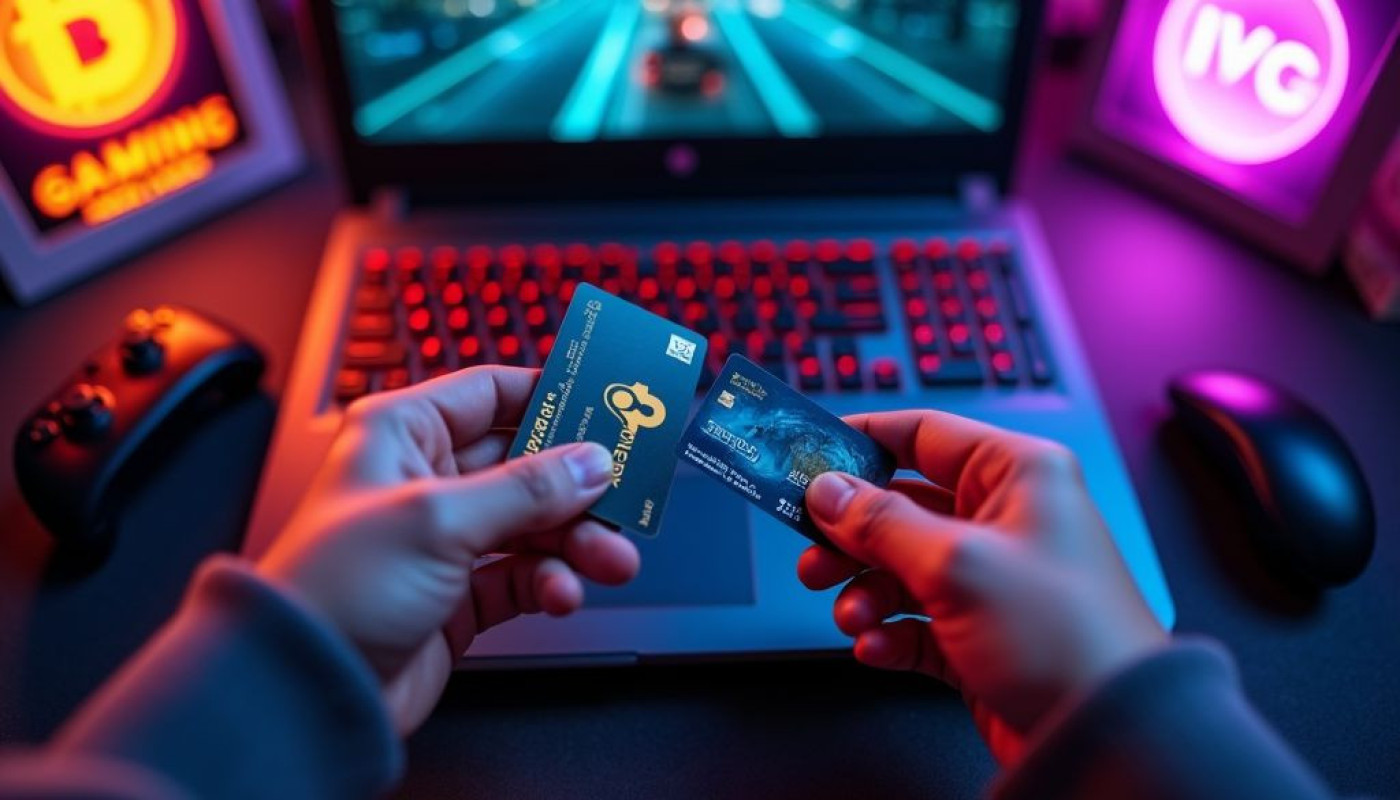Table of contents
The virtual realm of online gambling has rapidly become a prevalent pastime, drawing in users with the allure of instant access and the potential for significant rewards. Yet, the psychological implications of this form of entertainment are complex and multifaceted, touching on various aspects of mental health and behavior. This post delves into the psychological landscapes altered by online gambling, exploring both the captivating allure and potential pitfalls that await within. Read on to understand the psychological dynamics at play, and how they could affect you or someone you know.
Understanding the Online Gambling Phenomenon
Amidst a rapidly digitizing world, online gambling has surged, presenting a constellation of psychological hooks that differ from those in traditional gambling venues. What sets internet casinos apart is the unparalleled convenience they bring to users, allowing for gaming at any hour without the need to travel. Accessibility is another facet that fuels this trend, with digital betting behavior manifesting globally, irrespective of geographical barriers. This ease of access has contributed significantly to the propulsion of online gambling trends. Moreover, the interactivity and immersive nature of online platforms engage users in a more intense and personal manner. From a psychological perspective, gambling psychology suggests that the instant gratification and the sensory-rich environment offered by virtual games amplify the appeal, potentially leading to behavioral addiction. A clinical psychologist specializing in addiction would note the role of intermittent reinforcement in these settings, where the unpredictable rewards of online betting can strengthen gambling behaviors, making them deeply engrained and challenging to overcome. Engaging in online gambling can be seductive due to these psychological underpinnings, necessitating a nuanced understanding of its effects on mental health and behavior.
The Thrill of the Chase: Risk and Reward
The allure of online gambling lies heavily within the risk-reward gambling system it embodies, a dynamic that tantalizes the brain's pleasure circuits. When individuals engage in this digital pastime, they are often chasing the high that comes with the potential of a significant win. This anticipation, the sense of being on the cusp of a life-changing event, incites a surge of dopamine in the brain, a neurotransmitter linked to pleasure and reward mechanisms. In the context of online betting excitement, the dopamine release gambling enthusiasts experience is akin to that of other rewarding activities, creating a potent sensation that can lead to repetitive behavior.
Chasing losses is one such behavior where the individual continues to gamble with the hope of recuperating previous losses, often leading to a vicious cycle. As a neuroscientist studying the brain's reward systems, it is observed that this cycle is perpetuated by the dopamine-induced sense of anticipation, which can be as engaging, if not more, than the win itself. This nuanced understanding of addictive behaviors is key in developing strategies for responsible gaming. It's undeniable that online gambling platforms are designed to capitalize on these psychological responses, and players should be aware of these mechanisms to make informed decisions about their gambling habits.
Social Dynamics and Isolation
In the world of gambling, the advent of the internet has brought about significant changes to social dynamics. While traditional, in-person gambling often fosters a communal environment, the rise of social gambling online has led to a noticeable shift toward solitary betting. This phenomenon can be attributed, in part, to the convenience and accessibility of online platforms, where individuals can engage in gaming activities without the social facilitation that typically accompanies group settings. The implications of this shift are substantial, as it can lead to a sense of gambling isolation. When gamblers spend hours alone with their screens, the lack of real-world interaction can contribute to feelings of loneliness and detachment.
The impact on mental health from such isolation can be profound. Individuals who might otherwise have sought out social interaction within a casino or betting shop are now at risk of becoming insulated within their own virtual gambling worlds. The vibrant social networks and the psychological benefits they provide are replaced by virtual gambling communities—spaces that offer interaction, yet often lack the depth and quality of face-to-face relationships. Our mental health is intrinsically linked to our social connections, and so the reduction of these connections due to solitary online gambling practices can exacerbate issues such as depression, anxiety, and other mood disorders. As we continue to witness the expansion of digital betting platforms, the implications for mental health should be a focal point in the ongoing discussions about the future of mental health gambling support.
The Slippery Slope of Addiction
The journey from casual online betting to a full-blown gambling addiction can be both insidious and alarmingly swift. Initially, online gambling habits may appear harmless, a mere form of entertainment or a way to pass time. However, the ease of accessibility and the isolated nature of online play can quickly lead to more frequent and risky bets. When someone begins to chase losses, showing signs of compulsion and an inability to stop despite the negative consequences, it becomes evident that a behavioral addiction is forming. The transition from a casual gambler to one with a gambling disorder is marked by an increased preoccupation with gambling, a need to bet larger amounts to feel excitement, restlessness or irritability when trying to stop, and continued gambling despite adverse personal or financial outcomes.
Compulsive betting, as the term suggests, overrides the individual's ability to resist urges, leading to a deterioration in control. The psychological impact is profound; individuals may experience anxiety, depression, and feelings of helplessness. The addiction hijacks the reward pathways in the brain, similar to substance addictions, making the individual's ability to abstain increasingly challenging. Without intervention, this spiraling cycle can devastate one's financial stability, relationships, and mental health.
For those looking for more info on how to address gambling disorder and compulsive betting habits, it is advisable to seek the guidance of a professional with experience in treating gambling addiction. Knowledge and understanding of this condition are vital for recovery, and specialized assistance can provide the necessary support and strategies to regain control over one's life and overcome the compulsion of gambling addiction.
Coping Mechanisms and Seeking Help
Dealing with the adverse psychological effects of online gambling demands a proactive approach to mental health and well-being. One effective method is responsible gambling, which includes setting limits on time and money spent on gaming activities, as well as maintaining a balanced lifestyle with various interests outside of gambling. When these measures are not enough, and an individual recognizes a concerning pattern, seeking problem gambling help becomes paramount. Support for gambling addiction is widely available, ranging from online forums and helplines to in-person support groups and professional counseling services.
Additionally, gambling therapy, particularly cognitive-behavioral therapy (CBT), has been recognized as a potent intervention for those struggling with gambling-related issues. CBT helps individuals identify and challenge irrational beliefs and behaviors associated with gambling, replacing them with healthier thinking patterns and coping strategies. Pursuing such structured gambling coping strategies can lead to significant improvements in mental health and a reduction in harmful gambling behaviors. Those facing the challenges of online gambling's psychological impacts are encouraged to reach out to qualified professionals to embark on a journey towards recovery and regain control over their lives.
Similar

How Will Advanced Virtual Assistants Impact Daily Productivity?

Exploring Alternative Payment Methods For Online Gaming Platforms

Maximizing Your Earnings On Virtual Chicken Crossing Games

How Adaptive Difficulty Enhances Gaming Experiences

Top Trends In Sustainable Fashion For A Conscious Wardrobe

Exploring The Latest Trends In Digital Innovation And Technology

The Psychological Benefits Of Engaging In Creative Wordplay Games

Poker on streaming: the revolution in live play

Exploring The Benefits Of Personalized Entertainment Recommendations

Exploring Traditional And Modern Fusion In Japanese Cuisine

Exploring The Impact Of Minimalist Design On User Engagement

Exploring The Future Of Online Music Learning Platforms

Exploring The Latest Trends In Brazilian Music Streaming Services

How Personalized Entertainment Feeds Are Changing Media Consumption

Exploring The Benefits Of Specialized Content Discovery Platforms

Exploring Innovative Online Platforms For Brazilian Music Lovers

Exploring The Impact Of Minimalist Web Design On User Engagement

Exploring The Benefits Of Online Event Management Platforms For Small Businesses

How Virtual Ticketing Is Revolutionizing Access To Entertainment And Live Events

Tips For Beginners To Safely Enjoy Online Gambling

Exploring The Benefits Of Personalized Content Discovery Platforms

Exploring Traditional Japanese Crafts Through Online Platforms

Exploring Modern Japanese Fashion Trends Through An Online Platform

Exploring The Benefits Of Digital Music Platforms For New Artists

Exploring The Benefits Of Bilingual Education In Early Childhood Development

Exploring The Benefits Of Advanced Event Discovery Platforms

Exploring The Impact Of Traditional Arts On Modern Japanese Design Aesthetics

How Learning Japanese Can Open Doors To Unique Cultural Experiences

Exploring Traditional Japanese Crafts Through An Innovative Online Platform

Exploring The Impact Of Modern Japanese Lifestyle On Global Fashion Trends

Exploring The Latest Trends In Japanese Fashion And Lifestyle

Exploring Traditional Japanese Crafts And Their Modern Applications

Exploring The Benefits Of Innovative Online Entertainment Platforms

Exploring The Rise Of Online Gambling In Australia

How To Recognize Fair Play Certifications In Online Gaming

The Benefits Of Loyalty Programs Offered By Gaming Sites

The Role Of Random Number Generators In Online Gaming

Using Statistical Analysis To Improve Gaming Strategies

Exploring The Thrills Of Playing Online Crash Games For Free

Understanding Risk Levels In Road Crossing Casino Games

How To Choose The Right Affiliate Program For Your Website

Exploring The Thrill Of Crash Gaming With A New Online Airplane Game

